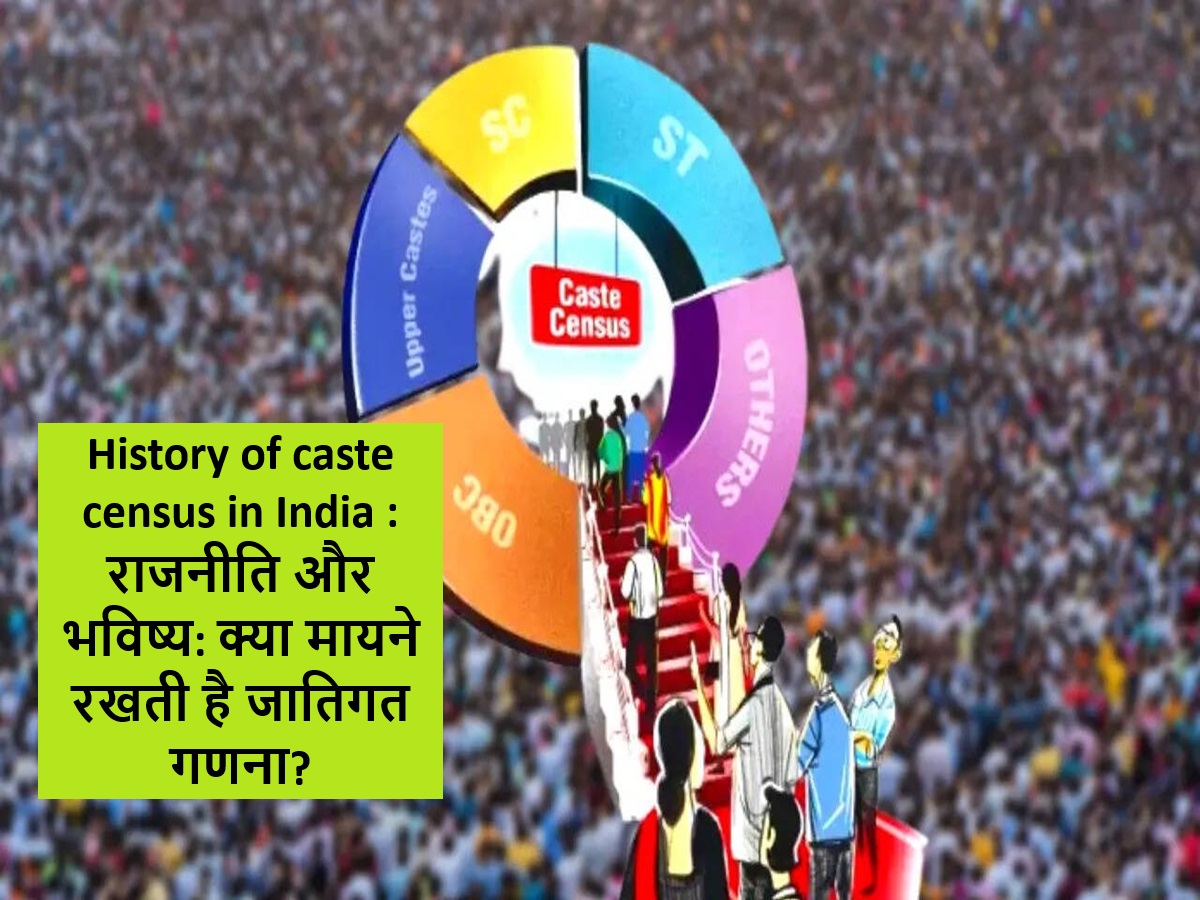News India Live, Digital Desk: The issue of caste census in India has been at the center of political and social debates since independence. Let us understand what is the historical reference to caste calculation and what can be its future.
What is caste calculation?
Caste census means systematic collection of data from different castes during the national census. In a country like India, where social and economic conditions are related to caste, these figures can be helpful in preparing policy decisions, reservation and social justice programs.
Historical reference to caste census
British India (1881–1931): Caste calculations were done in every decade from 1881 to 1931 during the British rule. Its purpose was to understand India’s complex social structure and strengthen colonial rule.
After independence (1951): In the first census of independent India in 1951, the then Prime Minister Jawaharlal Nehru’s government decided not to calculate other castes except the Scheduled Castes and Tribes. The reason for this was the desire to strengthen national unity.
1961 instructions: The central government allowed the states to conduct survey to prepare lists of other backward classes (OBCs) at their own will. However, this was not done at the national level.
How did caste calculation become a political issue?
Mandal Commission (1980): After the recommendation of 27% reservation for OBCs in government jobs by the Mandal Commission, a lack of caste data was felt. This intensified the demand for caste census.
Socio-Economic and Caste Census (SECC) 2011: In 2011, the UPA government conducted comprehensive caste calculations, but its figures were not made public, which created controversy.
States initiative: Due to lack of caste calculations at the national level, states like Bihar, Karnataka and Telangana themselves conducted caste survey. Bihar’s 2023 survey revealed that the OBC and EBC population is more than 63%.
Why is caste census important?
Caste census is not just a statistical practice, but an important part of social justice and political strategy. This will help to ensure equal access to services like education, health, reservation and social security. According to Poonam Muttreja, Executive Director of the Population Foundation of India, caste calculations can make appropriate policies by highlighting structural inequalities.
However, some critics believe that this may increase caste division.
Ahead
The government has announced to include caste calculations in the next census. This is likely to bring a major change in political scenario, administration and social policies. However, when and how this process will start, it has not been announced yet.
59 cities of UP to become high-tech: Yogi government gave green signal to GIS master plan, starts from 35 cities including Ayodhya-Varanasi
The post history of caste census in India: Politics and future: What does caste calculation mean? First appeared on News India Live | Breaking India News, The Indian Headline, India Express News, Fast India News.
